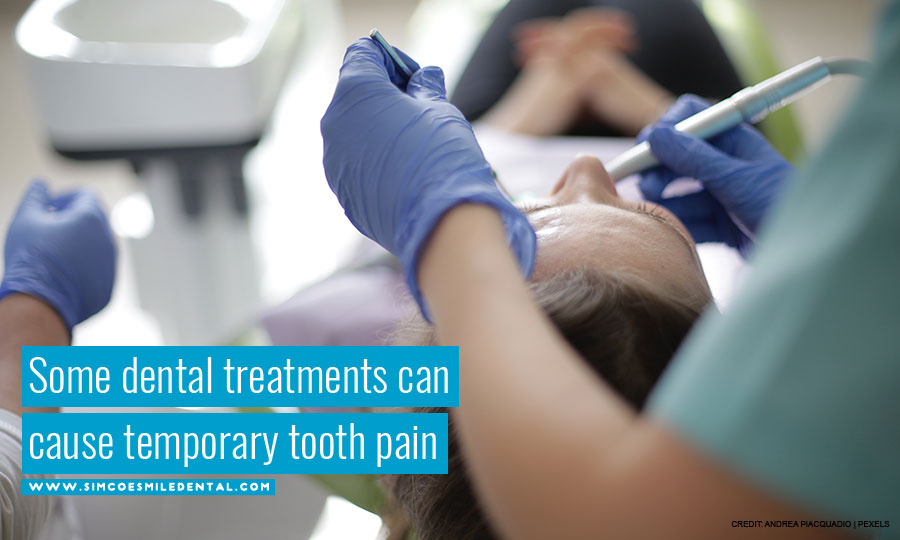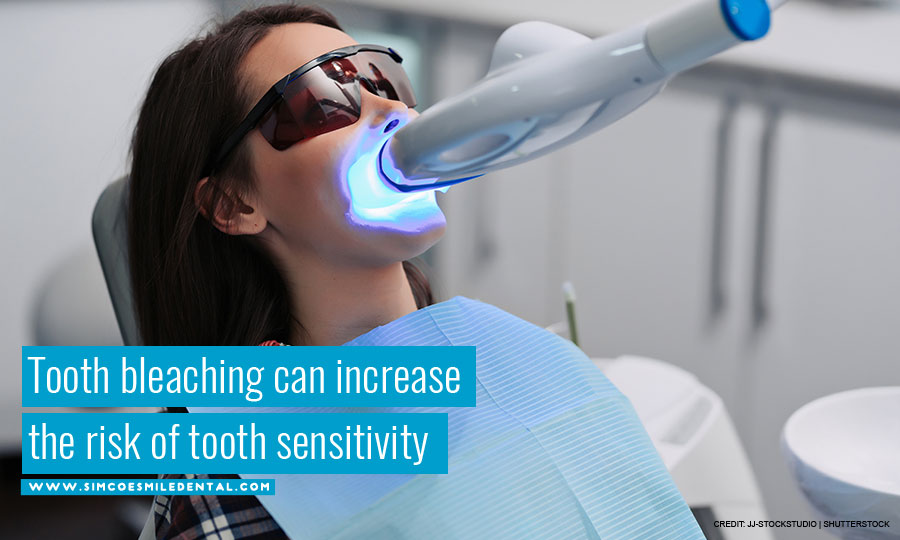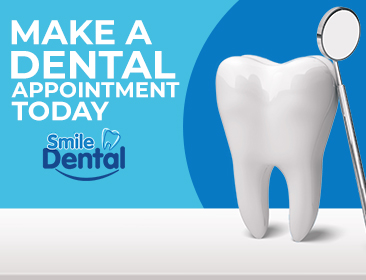Anything from momentary gum sensitivity or a popcorn hull stuck in your gums to a damaged and broken tooth or a bacterial infection can trigger a toothache. However, some more serious toothaches require professional dental care to relieve the pain and whatever issue is causing it.
While sudden tooth sensitivity can seem usual and not too worrisome, ignoring it could have serious repercussions. Depending on the cause of the toothache, pain can come in 2 phases: the initial phase and the recurring phase. The initial pain in your tooth will soon subside if you can endure it. After a while, the absence of pain may make you believe the problem has been resolved until the pain eventually returns.
What Causes Random Tooth Pain?
Your whole body is affected when your tooth suddenly hurts. It can affect your job and eventually how you function. So, it is important that you know what causes toothaches in order to prevent persistent and unbearable tooth pain. Knowing what might be causing the discomfort will help you know what to do if you get a sudden toothache and when to seek help.
- Dental Procedures
Your tooth pain may also be a result of undergoing a filling or drilling dental procedure. These procedures can momentarily make the nerve endings of your tooth become more sensitive. Fortunately, this only lasts no longer than 2 weeks.
- Tooth Decay
Tooth decay or cavities are among the most often reported causes of toothaches. The bacteria that live in the layers of your teeth and feed on the sugars and starches you eat are the typical cause of tooth decay. The acid they produce gradually erodes the enamel and causes weak spots and holes to appear. Cavities typically cause little discomfort until they spread inside of your teeth and reach your nerve endings. - Cracked Tooth or Crown
It is not shocking to know that a cracked tooth or crown can result in tooth sensitivity and pain. Exposed nerve endings, severe cavities, and eventual tooth loss are all risks associated with cracked or broken teeth. The following factors can cause dental injuries to happen:- Teeth grinding
- Weakened tooth integrity
- Biting or chewing on hard foods
- Getting hit in the mouth
- Aging
But a crack in the tooth doesn’t have to be noticeable to cause pain. Occasionally, a tooth may be so minimally broken that it is almost impossible to notice, but the pain can still be unbearable.
- Enamel Erosion
Teeth are made up of enamel, a hardened outer layer, and dentin, a softer inner layer. When the tiny tubules that form the dentin get exposed due to damaged tooth enamel, tooth sensitivity or pain occurs. In fact, about 12% of people have dealt with “dentin hypersensitivity” in some way.
An extremely acidic diet, vigorous teeth brushing, and other factors can all contribute to enamel or dentin erosion. The enamel functions as a coating and protection of the teeth and when it gets eroded and not replaced, shooting pain can be felt while eating certain foods.
- Gum Infection
Gum diseases or infections, also called periodontal diseases, affect approximately 14% of adults or 1 billion cases worldwide. Specifically, swelling and redness are brought on by gingivitis or gum irritation. If infections are not treated, they have the potential to worsen and cause bone loss. This allows more places for bacteria and plaque to form making the teeth sensitive and painful when exposed, touched, or chewed on. - Gum Recession
Gums are the layers of pink tissues that surround the bone and the roots of your teeth. They protect the nerve endings. As you age, your gum tissues may start to deteriorate and recede. This recession will expose the roots, making them susceptible to infections. If you suddenly have toothache symptoms, gum recession may be to blame. - Sinus Infection
The term sinusitis in medicine refers to sinus inflammation. Sinuses are tiny, air-filled cavities that are located behind the cheekbones and forehead. Pain in the jaw and teeth is one sign of a sinus infection. Your inflamed sinuses can put pressure on the nerve endings of your tooth which can cause sudden pain in the teeth and the jaw. - Teeth Bleaching Products
Products like whitening strips, bleaching gels, and getting teeth-whitening procedures can all increase your susceptibility to tooth sensitivity and pain. Although bleaching-related tooth pain is frequently brief and goes away after you stop using the items, it is crucial that you are aware of the numerous negative side effects of bleaching, particularly if it is performed incorrectly, like enamel damage and gum infection. Use caution when putting things in your mouth because damage to the enamel, for instance, is irreversible and permanent.
- Teeth Grinding and Jaw Clenching
Tooth grinding and jaw clenching, which usually occur during sleep as a result of anxiety and stress, puts pressure on your teeth that can eventually wear down and damage your tooth’s enamel leading to long-term tooth sensitivity and widespread pain. - Teeth Sensitivity
Tooth sensitivity is a dental condition that makes it difficult for a person to enjoy both hot and cold beverages and foods. This develops due to the thinning of your tooth’s enamel or the receding of the gums. As a result, anything cold or hot, and certain foods that come in contact with your teeth can cause a sudden flash of pain and discomfort.
There are several reasons why you experience tooth pain, but many can be avoided by living a healthy lifestyle that includes good oral hygiene. Warm compresses, over-the-counter pain relievers, and tooth-numbing gels are examples of home treatments for tooth pain. However, the root cause of your tooth pain will not be addressed by these simple treatments. If you experience gum sores, swelling, or pain that lasts for more than a few weeks, make an appointment with your dentist for a complete diagnosis and treatment.
Have regular dental check-ups in Oshawa to avoid getting sudden toothaches that could potentially ruin your day. At Simcoe Smile Dental, we will help you get the right type of dental examination and treatment. Reach us at (289) 312-1482.




